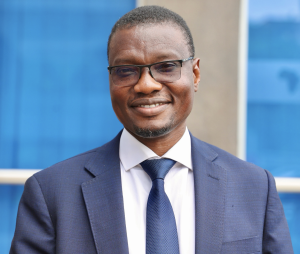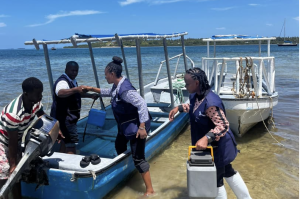On the Frontlines of Mpox: Inside DRC’s Coordinated Response
-
by
AFENET
The morning sun is just breaking over Kinshasa, spilling gold over the busy streets, when Dr. Faray Grâce and Steve Makoba set out for another day in the fight against Mpox. They are not strangers to crises. Both trained through the Field Epidemiology and Laboratory Training Program (FELTP), they carry the discipline of epidemiologists and the grit of field workers who have seen outbreaks up close.
They are under the banner of AFENET’s Corps of Disease Detectives (ACoDD) coordinated by the DRC Field Epidemiology Training Program (FETP) supporting the Democratic Republic of Congo’s health ministry in an outbreak that refuses to relent.
A United Front: Partners Align in Lingwala
Recently, at the Mpox Coordination Center in Lingwala, Kinshasa, a high-level meeting brought together key response partners, Africa CDC, the World Health Organization (WHO), the Ministry of Health, AFENET, and ACoDD. The focus: aligning strategies for vaccination, surveillance, data sharing, and community engagement.
There, health experts emphasized the importance of vaccine rollout and maintaining strict preventive measures, reinforcing the message: “À partir de l’an faisons-nous vacciner contre la Mpox, tout en continuant d’observer les autres mesures préventives.” (From this year onwards, let us get vaccinated against Mpox while continuing to observe other preventive measures.)
This unified approach ensures that field teams are supported, resources coordinated, and messaging harmonized a critical factor in sustaining public trust and ensuring efficient response.
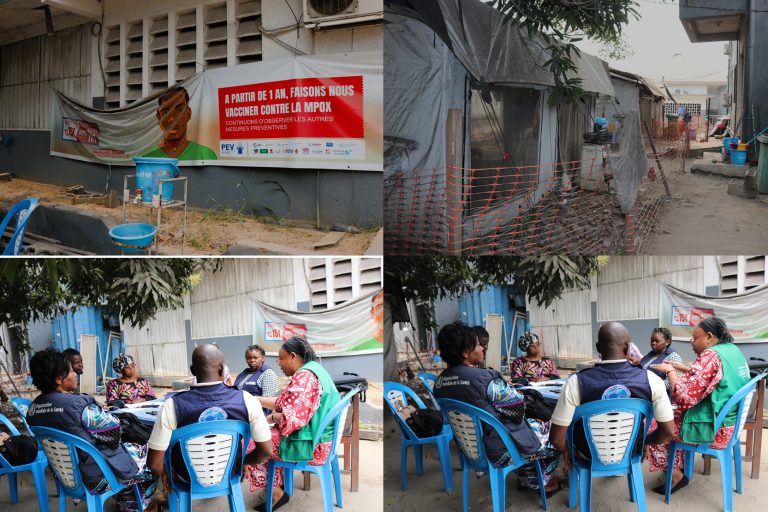
A Network of Watchers
Overseeing the operation is Dr. André Misombo Kalakala, ACoDD’s Mpox Manager for DRC. From Kinshasa, he coordinates activities across seven provincial health divisions: Kinshasa, Tshuapa, Bas-Uele, Sankuru, Équateur, Sud-Ubangi, and Kasaï, working closely with the Ministry of Public Health’s surveillance teams.
His job is to take the thousands of fragments of information coming from the field, alerts, lab results, contact tracing updates, and shape them into a clear picture for decision-makers. “We compile, analyse, interpret, and disseminate data so that the right action can be taken at the right time,” he explains. “ACoDD teams are instrumental in ensuring timely case detection and effective response.”
In Week 30 of 2025 alone, the ACoDD data showed:
- 1,009 alerts notified, 95% investigated, more than half by ACoDD teams
- 517 suspected cases identified
- 102 confirmed cases
- Nearly 3,000 new contacts listed and over 46,000 people sensitized
Across the country, ACoDD teams play a critical role in:
- Coordinating response efforts at health zone level
- Investigating and validating alerts
- Actively searching for suspected cases
- Collecting samples from suspected Mpox cases and ensuring safe transport to laboratories
- Listing and monitoring contacts
- Maintaining updated line lists of alerts and suspected cases
The dedication of these professionals from field investigators to national coordinators reflects AFENET’s core mission: building strong, responsive public health systems. In the face of Mpox, their collective action is not only containing the outbreak but also strengthening the foundations of disease surveillance in the DRC.
Together, they are proving that a coordinated, well-supported frontline response saves lives.
Faces at Limete Health Zone
In the Limete Health Zone, surveillance officer Fideline Bongo is one of those faces. Her voice carries quiet authority as she describes her daily routine: tracking every alert, validating cases, arranging for laboratory testing, and following up on contacts.
Also, in Limete Health Zone, two dedicated field epidemiologists, Dr Faray Grâce (FELTP Advanced Cohort 7) and Steve Makoba Mwela (Frontline Cohort 27) stand at the forefront of the Democratic Republic of Congo’s fight against Mpox. Deployed by AFENET, their mission is to: strengthen coordination, surveillance, vaccination, infection prevention and control (IPC), data quality, and community engagement in the ongoing response.
“We support coordination meetings, lead investigations, collect and transport Mpox samples, list and monitor contacts, conduct risk communication, raise awareness on vaccination, update databases, and brief health workers,” Steve explains, underscoring the multifaceted nature of their daily work.
“We coordinate, we investigate, we vaccinate,” Steve says. But his eyes betray the weight of the work. Mpox is not only a medical challenge, but also a social one. Stigma, misinformation, and fear spread faster than the virus itself. “We must fight the infodemic as much as the epidemic,” Dr. Grâce adds.
Their commitment extends beyond technical tasks. They actively combat the infodemic, countering misinformation with facts, and ensuring communities and healthcare providers receive accurate, life-saving information.
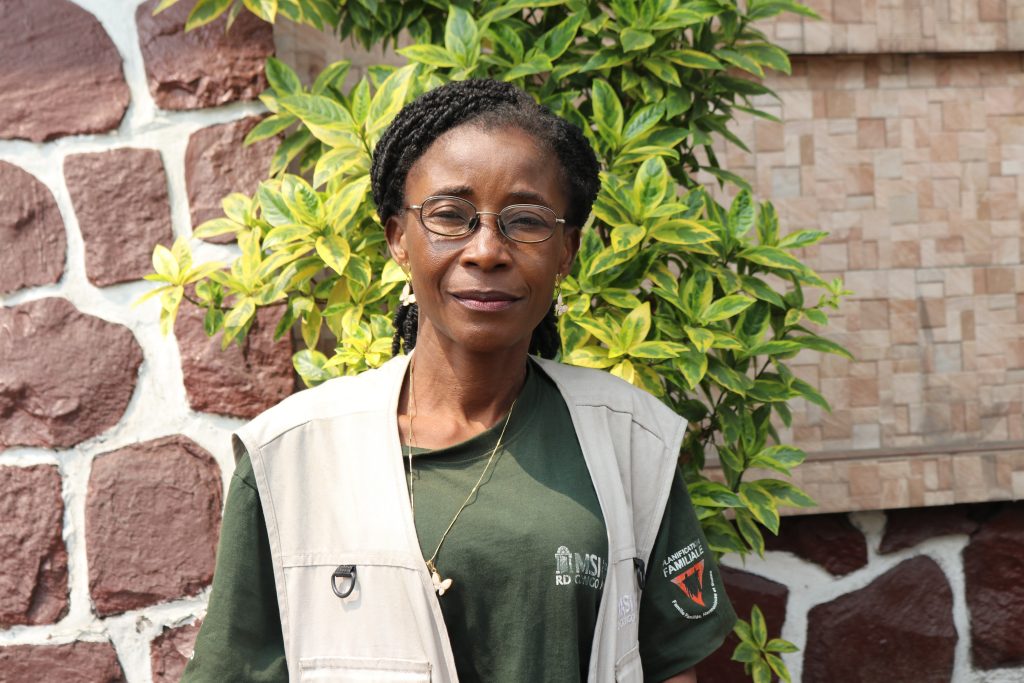
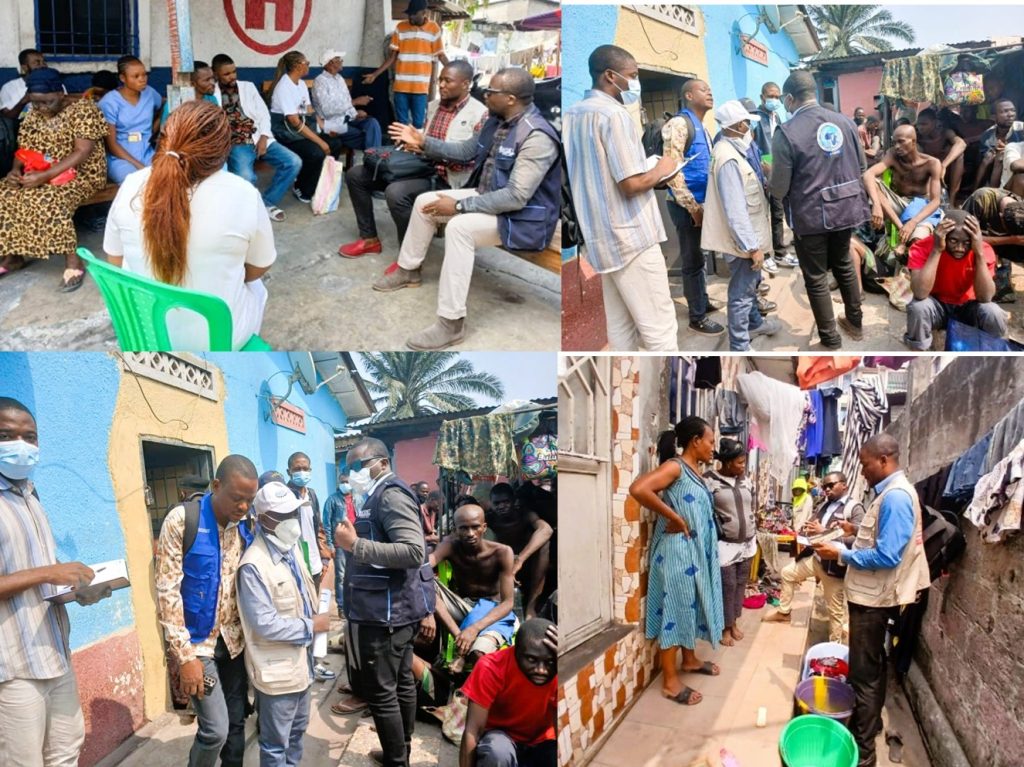
In the Kokolo Health District, which serves the army, Dr. Amisi Kengea Levis, the Medical Chief, underscores the importance of trust: “Without community cooperation, even the best-trained teams cannot stop the spread.”
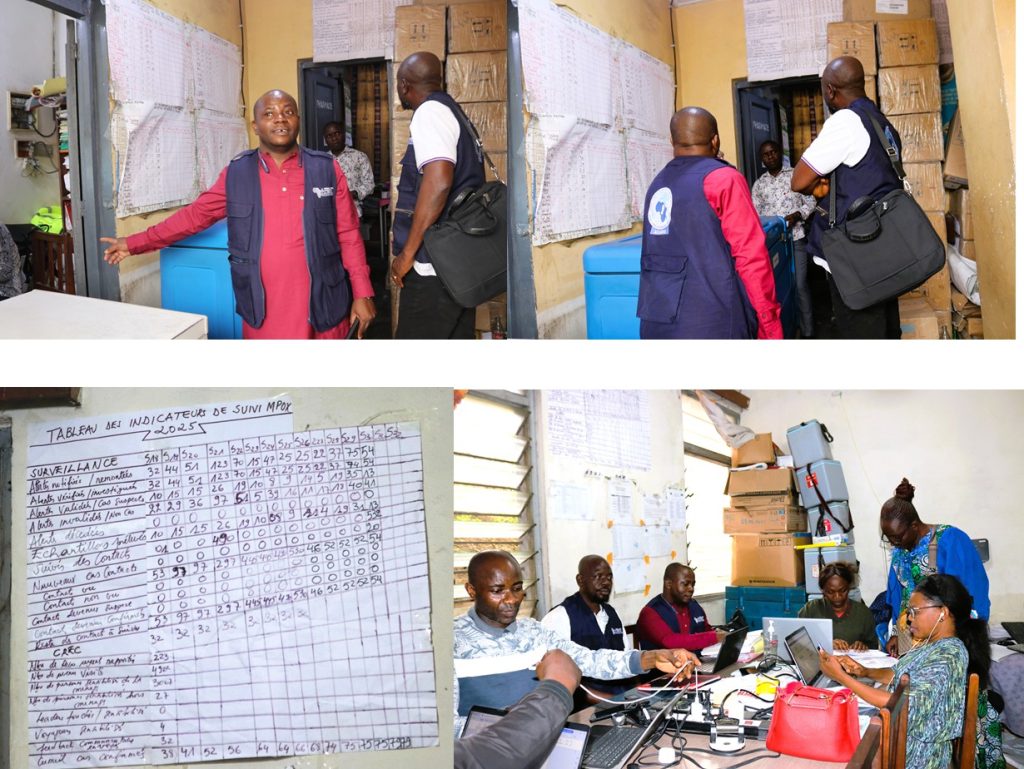
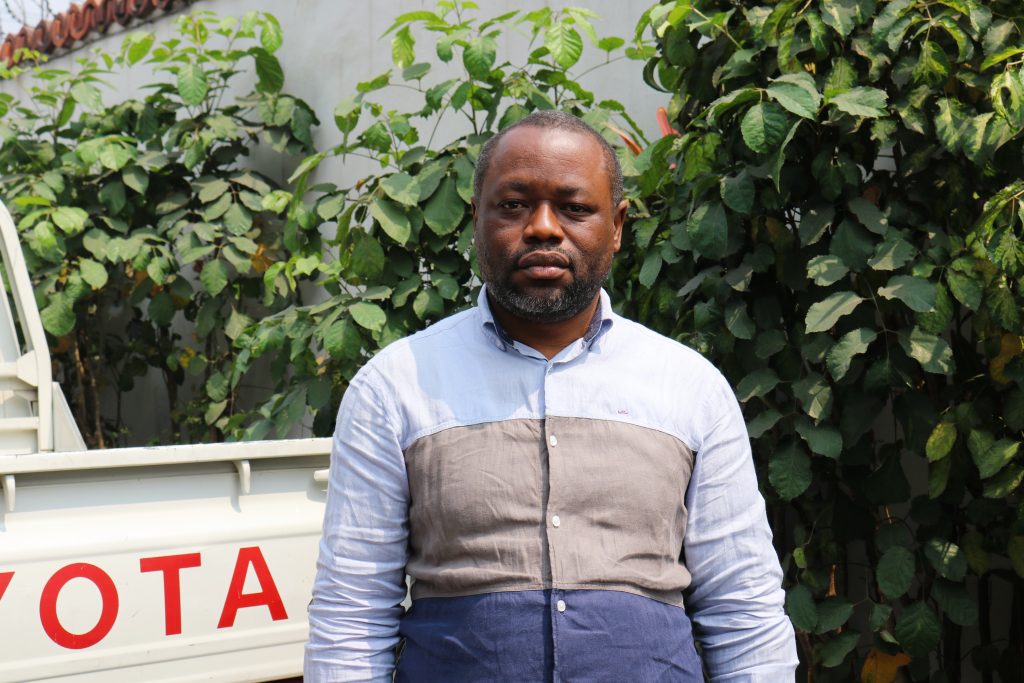
Resilience in the Face of Crisis
Doulin Mbadu, ACoDD’s Field Coordinator for Kinshasa, sums it up best:
“We are here to respond quickly, to support technically, and to keep everyone connected, government, partners, and communities. That’s how you stop an outbreak.”
Overseeing this complex operation at the provincial level involves supervising and coordinating ACoDD activities, providing technical support, analyzing field data to guide interventions, communicating information to stakeholders, and liaising with other response partners.
Beyond Borders
The DRC’s Mpox expertise is so recognized that when Sierra Leone needed help managing complex cases, Congolese experts extended their mission for an extra week. This cross-border solidarity is a reminder that disease respects no boundaries—and neither should the fight against it.
The Human Cost
One of the most sobering moments in recent weeks was the confirmation of the second Mpox Clade II case in Kinshasa a 39-year-old woman, the wife of the first confirmed patient. Her diagnosis triggered another wave of contact tracing and risk communication. It also underscored a painful truth: outbreaks touch families, not just statistics.
Across the country in Week 30 alone, 947 alerts were recorded 206 confirmed cases and 741 suspected with over 9,500 contacts identified in just six weeks, and thousands sensitized. These numbers are staggering, but behind every alert and every confirmed case is a person, a household, a story. The disease does not only strain health systems it fractures lives, tests resilience, and brings grief to communities already stretched thin.
Conclusion: A Wall of Defense
From Lingwala meeting rooms to the dusty streets of Limete, the Mpox response in DRC is a coordinated wall of defense driven by data, guided by partnership, and powered by resilient frontline workers. Together, they are proving that a united, well-supported response saves lives today and for whatever may come next.

